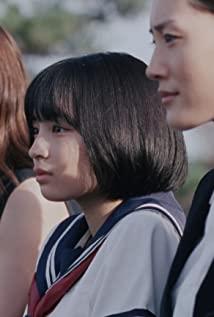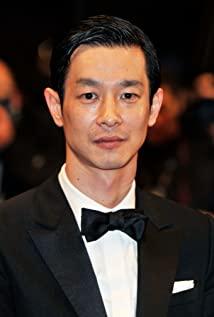The clue to the film, without a doubt, is the haunting but never seen "father" figure. The death of my father brought all those involved with him together at the funeral. So that funeral became the flashpoint of the dramatic conflict. The three relationships between the father's life were started with the dialogue between the eldest sister played by Ayase Haruka, Asano Rei, and her last wife. When she appeared, her exaggerated cry at the funeral clearly reflected her hypocrisy and pretentiousness, thus implying the difficulties of Ling's life as the youngest daughter, as well as her strength and forbearance. Therefore, the youngest son, who is the father and the third wife, is almost ignored in the play, while the youngest daughter becomes her stepmother and father, her biological mother and father, and the representative of her biological mother and father. The focus of the three sisters' relationship. From attending the funeral to the younger daughter leaving her stepmother to the ancestral home of her three sisters, it means that she has completed the handling of the relationship between her father and the third term. The rest is only the relationship between her biological mother and the original family, that is, she and her three sisters (in fact, the eldest sister is the representative).
In fact, the life of Duling after the character moved to the ancestral house is full of how to truly enter this family lineage from the identity of an outsider. It can be seen that what she is carrying is not only her daughter as a result of an extramarital affair, but also her father's most important witness in the second half of his life and a spokesperson for his father's role. There is actually some kind of identity and conflict between this spokesperson and the eldest sister, the person who knows the relationship between parents the most among the three sisters, and then the person who plays the role of parent. In the process of exploring what kind of person their father was, they reached mutual understanding and relief. The reason why the role of the little daughter is important (such as the English name: Our Little Sister) is because she is the only connection with the father, the father who was missing in the growth stage of the third daughter. Therefore, it is not through them that the youngest daughter will return to the family, but only through the youngest daughter, can the three sisters' love and hatred for the previous generation be truly relieved, can they reconcile with their deceased father, and can truly get rid of "Family" walks out of the psychological predicament and moves towards the true self. And the eldest sister's self, even after she is released, still chooses to protect her family, protect her father's "legacy", protect the lives of more people (hospice plan) and finally give up the possibility of her own, for her, because she truly understands, truly Only by letting go and truly getting out of the shackles and shackles of oneself can it be truly possible to love, only then can it be truly possible to love, and have the ability to love and be loved. This is also self-salvation on the road to saving others (little sister).
View more about Our Little Sister reviews











